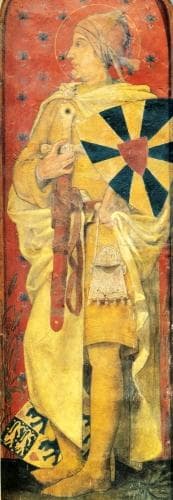
Blessed Charles The Good
Blessed
Feast Day: March 2
Death: March 1, 2
Biography
Blessed Charles The Good, also known as Charles of Flanders or Charles I of Flandre, was born in 1083 as a prince, the son of King Saint Canute of Denmark and Adela of Flanders. Unfortunately, his father was murdered, and Charles was raised in the court of his maternal grandfather, Robert de Frison, the Count of Flanders. Flanders was a region that is now part of modern-day Belgium.
In 1119, Charles succeeded his grandfather, Robert II, as the count of Flanders. During his rule, he married into the family of the Duke of Clermont, a noble family from modern-day France. Charles was widely admired and respected by the people, and he earned the title "the Good" through his continuous defense of the poor against the profiteers of his time, both clerical and lay.
One of Blessed Charles The Good's notable achievements as count was the reformation of laws to make them fairer for all. He supported the poor, feeding the hungry and providing for those in need. Despite his noble status, Charles led a humble and devout life, walking barefoot to Mass each day.
Tragically, on 2 March 1127, Blessed Charles The Good was martyred in the church of Saint Donatian of Rheims at Bruges. He was assassinated by Borchard, who was part of a conspiracy formed by the rich individuals whom Charles had offended through his defense of the poor. The count's assassination was a direct result of his efforts to bring justice and equality to his realm.
Blessed Charles The Good is often depicted as a nobleman holding a purse and a sword, representing his commitment to justice and his generosity towards the poor. His feast day is celebrated on 2 March, the day of his martyrdom.
In 1883, Pope Leo XIII officially beatified Charles, confirming his cultus or popular devotion among the faithful. Today, relics of Blessed Charles The Good can be found at the Cathedral of Bruges in Belgium, where he was martyred. His life serves as an example of righteousness, compassion, and sacrifice, inspiring believers to champion the cause of justice and care for the less fortunate.